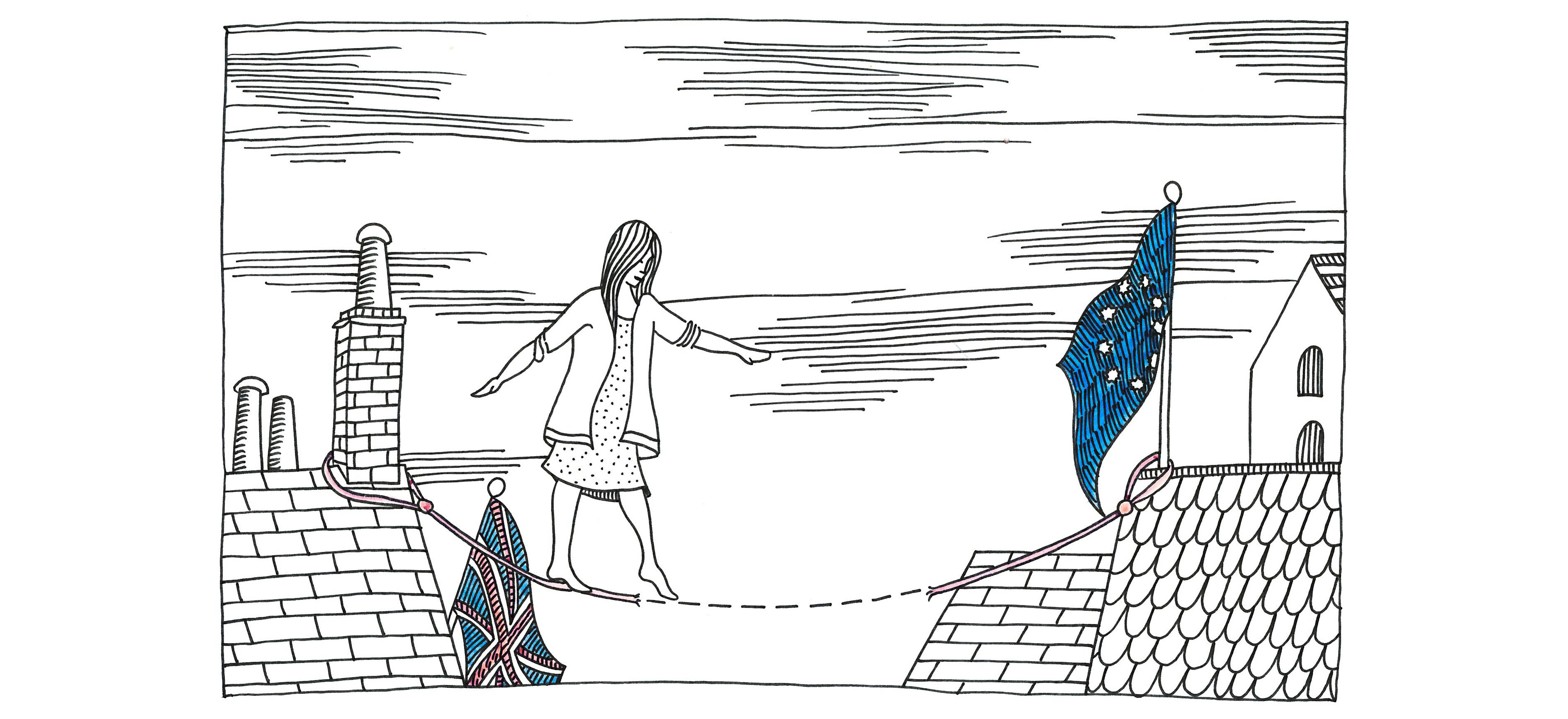The UK has voted to leave the EU, a close decision which has left many British people, especially the young, feeling frustrated and apprehensive. Our author attempts to describe the reaction of the 48% of the voters who wanted to remain, and how it feels now to be in a post-Brexit Britain.
Hearing the news on the morning of Friday 24 June was a moment I am not likely to forget. My immediate reaction to the result was complete disbelief, followed by a large dose of anger. Anger that this is how Europe and the world sees the UK now, as the inward looking, dismissive disciples of the UK Independence Party. Anger that the 48% who voted to remain in the EU are being largely disregarded on the international stage. Anger that, quite honestly speaking, I didn’t get my way. Shame quickly followed, and it hasn’t entirely left.
On a personal level, the days since the Referendum have been difficult and dismaying. I wholeheartedly wanted the UK to stay. I wanted it to sit at the grown-up’s table and continue to contribute to a functioning and constructive system of international cooperation which I admire. I can identify myself as a Europhile with a complete lack of irony, having lived in France and Germany as a young adult studying their languages, literature, and politics. Europe fascinates me and inspires me, and their cultures have become like second homes to me, comforting but also exciting. I had never seen this part of myself as incompatible with British politics or public opinion, but this vote has since disabused me of that.

If Meeting Halfway is the inspiration for this group of European translators, then it would seem Britain has chosen ‘Me First’ as its inspiration. Britain feeling hostile, even sometimes superior towards Europe is nothing new: take, for example, a popular urban legend of an English newspaper headline from the early 20th Century: ‘Fog in the channel, Continent cut off.’ I had thought this phenomenon had been relegated to the sidelines of British life, appearing in jokes and anecdotes, but never seriously. However, as I found myself genuinely surprised at the result of the vote on 24 June, I am perhaps guilty of a shameful ignorance in not being aware of how differently others in the UK see Europe and its institutions.
My European friends and colleagues have displayed sincere bafflement at the result of the Referendum. Reading the responses of the European nations I have come to consider as second families and cultures has compounded a feeling of helplessness. I believe we are failing to convey to them how much the younger generation of the UK wanted to stay and participate in the EU. (73% of 18 – 24 year old voters chose to stay.) If there is one additional thing I would hope our European neighbours take away from this, it’s that young British people overwhelming supported our remaining.
[Not a valid template]
In the heart of all of this temporary political and economic chaos there has emerged a single point of collective experience among many people here, especially the young and almost regardless of their political viewpoint: that of waking up and not fully recognising the country they live in. This does not limit itself to a simple ‘morning after’ phenomenon. The UK seems like a different country from before the Referendum, which is, admittedly, realistically impossible. This referendum has revealed a certain characteristic to my country that I did not know existed, or perhaps still existed. There is much to be done to improve the lives of people here, to identify their political discontent and to engage them in it so it can be resolved. To have realised this at the very least is perhaps the dull silver lining of an already devastating storm cloud.
There is a long list of new objectionable things to contend with in the post-referendum landscape in Britain. There is a feeling of powerlessness and frustration towards the format of a referendum the people of the UK didn’t ask for, or even, it would seem, fully think about. There is the fact that I had my say and that my say didn’t matter. To have pleased Donald Trump is insufferable. To have been endorsed by the likes of Marine Le Pen possibly more so. But just as important at this time is to work with the decision that won democratically and set out to limit the damage brought on by this decision.
I know on a personal level things will not significantly change for me. I will continue to travel within Europe, be inspired from it and learn from it, and I find it hard to imagine a time when that won’t be the case. But the fact that my country’s policy is now unaligned with my personal beliefs will continue to be jarring.
When your country is going on and doing something without you, something which is actually going to affect you and your peers the most, it becomes difficult to tamper down feelings of unease and resentment. I hope this initial emotional residue will subside to a point where we can be constructive contributors to the shape of Britain’s new relationship with the EU. These times may turn out to be trying for Britain, and sadly also for Europe, but the fact that the overwhelming majority of my peers voted with me leaves me feeling hopeful for the future, where we can work together to be closer to Europe than our ever-dwindling ‘Brexiteers’ seem to want.





Recent Comments